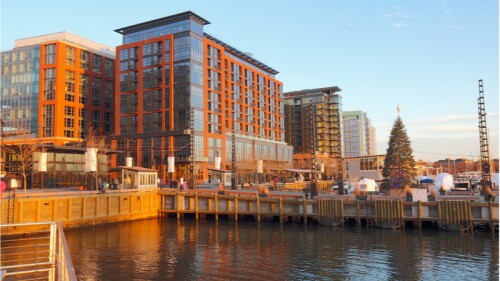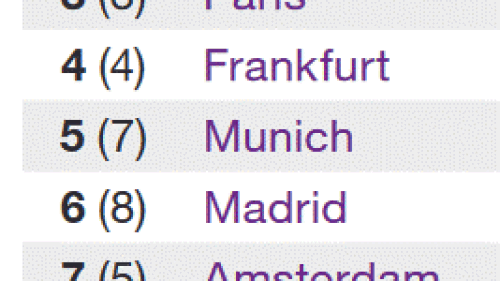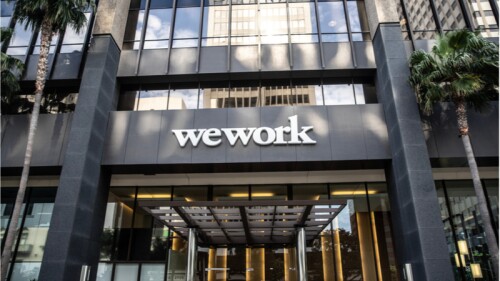News
Three longtime ULI leaders have joined up to donate a total of $17 million to launch the ULI Chair’s Fund. Douglas D. Abbey, James D. Klingbeil, and Thomas W. Toomey have created the unrestricted fund to give the Institute the flexibility to respond quickly to new opportunities as it delivers on its mission of shaping the future of the built environment for transformative impact in communities worldwide.
The economic recovery in Washington, D.C., continued through the close of the third quarter of 2021. Office leasing activity is ongoing, though at a slower pace than years past, while asking rents are rising (up 2.1 percent from 2020 according to Newmark). The overall D.C. vacancy rate is just over 18 percent, according to CBRE.
The growing glut of undeployed capital is expected to provide a lifeline to the strong revival of the Asia Pacific region’s real estate markets, according to the Emerging Trends in Real Estate ® Asia Pacific 2022report, with Tokyo overtaking Singapore as the top-ranked investment prospect.
A recent ULI webinar provided an overview of U.S. infrastructure spending and the details of the Infrastructure Investment and Jobs Act of 2021. Then the panelists discussed projects in Austin, Texas, and Washington, D.C., that demonstrate how infrastructure investment supports equitable and desirable development.
How many electric vehicles should be on America’s roadways by 2030 to meet climate goals? How much land will be needed for solar or wind farms? Princeton University has released the final report of its Net-Zero America study, which answers these questions and others.
Lynn Thurber, the chairman of JLL Income Property Trust and former ULI Global Chair, has donated $500,000 to support the efforts of the ULI Greenprint Center for Building Performance’s Net Zero Imperative, a multiyear initiative to accelerate decarbonization in the built environment.
Emerging Trends in Real Estate ® Europe 2022, the 19th annual survey by ULI and PwC of European real estate sector leaders’ expectations for the year ahead, finds a significant leap in confidence going into next year. The longer-term outlook is characterized by uncertainty, with many still coming to terms with the radical changes to the business of real estate brought about or accelerated by COVID-19.
In October 2020, JPMorgan Chase announced a $30 billion Racial Equity Commitment to help close the racial wealth gap among Black, Hispanic and Latino communities. In the last year, JPMorgan Chase has deployed or committed more than $13 billion of its $30 billion goal largely driven by affordable rental housing preservation and homeownership refinance, which were existing products and processes where the firm took prompt action to do more.
Coworking giant WeWork began trading on the New York Stock Exchange last week, going public via a merger with special acquisition company BowX Acquisition nearly two years after a pulled initial public offering.
Real estate economists predict continued improvement in the U.S. economy and property markets over the next three years, according to the fall 2021 ULI Real Estate Economic Forecast. While the forecast is generally positive, contributing economists downgraded economic growth and predicted significantly higher inflation during the forecast period (2021–2023) compared with the spring forecast.









